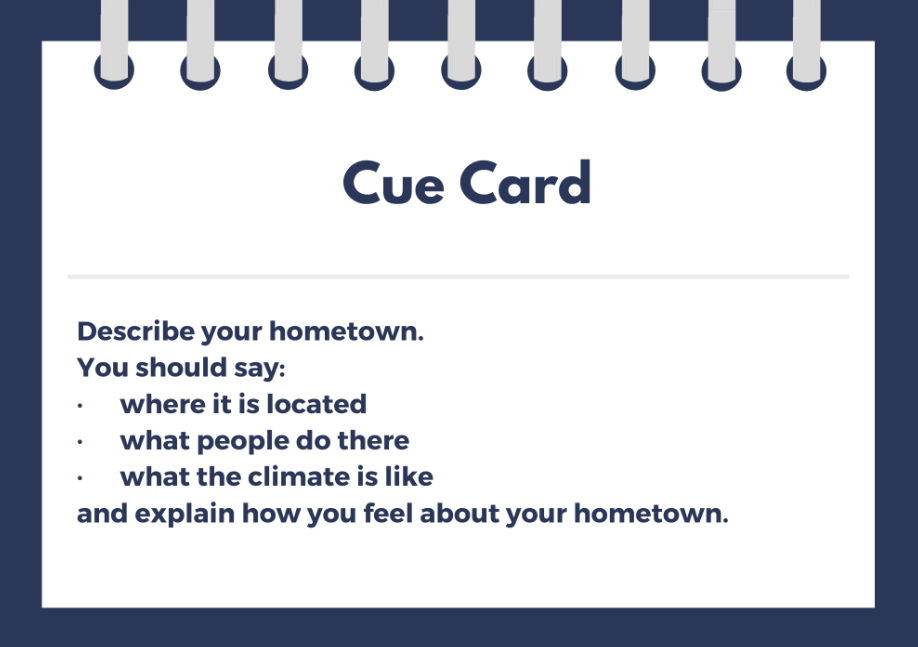The second part of IELTS Speaking, which has cue cards, may seem very difficult for many volunteers. The questions in this section are a bit difficult, and you should be able to give good answers to succeed. In the first step, you must be fluent in English. But this isn’t enough. You can easily pass the Speaking cue cards section by following a few tips. Here we review these important points so that by observing them, you will no longer be afraid of this section, and it will even seem attractive to you.

1. Don’t leave your sentences halfway
You must finish your sentences when talking to the examiner. If you give short answers or don’t even complete your sentences and move on to the next sentence, you will surely lose a large part of your score. This will show the examiner that you are weak in speaking skills and can’t make sentences. But completing the sentences doesn’t mean using long sentences or talking too much. Instead, you should use appropriate sentences to manage the time, so the examiner doesn’t get bored.
2. Use high-level words and phrases
Using high-level words and phrases will help you a lot in this section. But this has its own rules. You should use these words if you have complete and correct wording. If you only use high-level and complex words but don’t pay attention to the correct place and grammar of the sentence, it will not work. You may also lose your score. So first, try to have complete mastery, and then if you are sure, use high-level phrases. Doing this shows that you have a vast vocabulary and are at a high level in English.
3. Take the exam with complete information
As you know, the second part of the Speaking test is complex and challenging. Be sure to study and practice this section before the exam day. Cue cards have different topics. These are about family issues, events, essential life dates, etc. Write for yourself last year’s cue cards for practice. Try to put yourself in the test conditions and talk about these issues in a specified time. Also, think about the important events of your life before the test. For example, if the examiner asks you about the most important history of your life, remember that day without thinking and start explaining.
4. Don’t neglect taking notes

In the second part of speaking, when you take the cue card, the examiner gives you paper and a pen if needed. In this paper, you can memorize the important points of your card or your mental ideas in less than 1 minute. This is very important and helps your focus. You can refer to these notes and start answering according to them when answering questions.
Last point
Finally, the most important thing is to practice and be focused. Try to be yourself in the conversation and answer the questions with a smile and calm. Following the above tips can also help you a lot. In general, you should do all the things that help you to have a good conversation and move forward with confidence.

